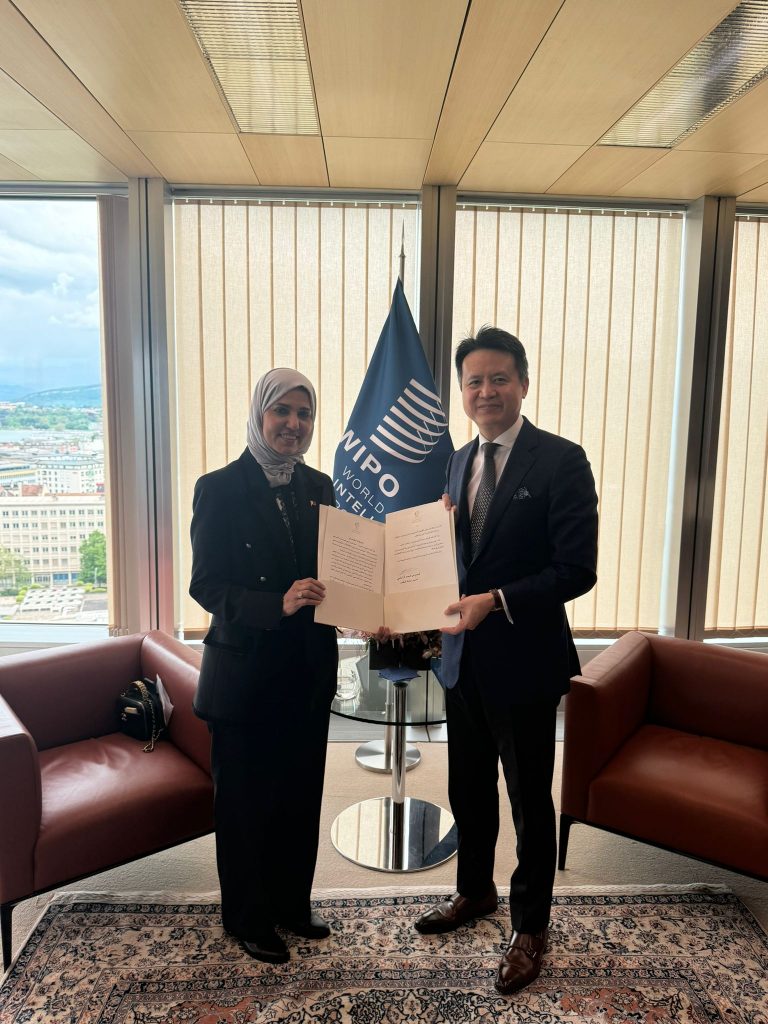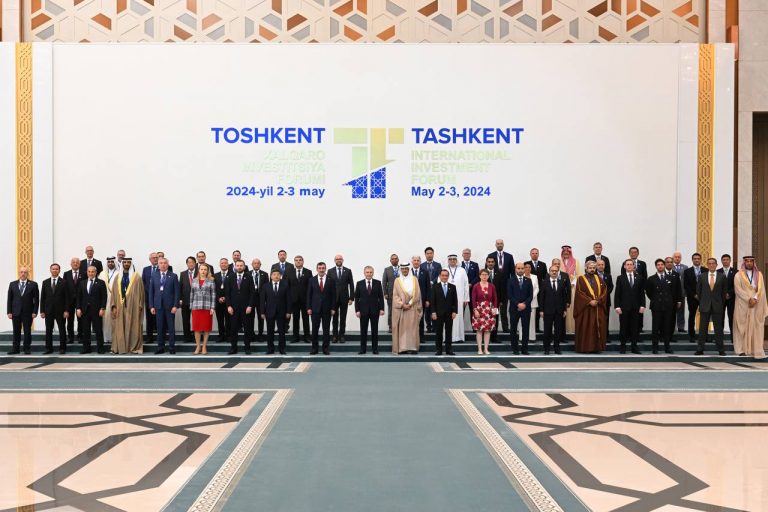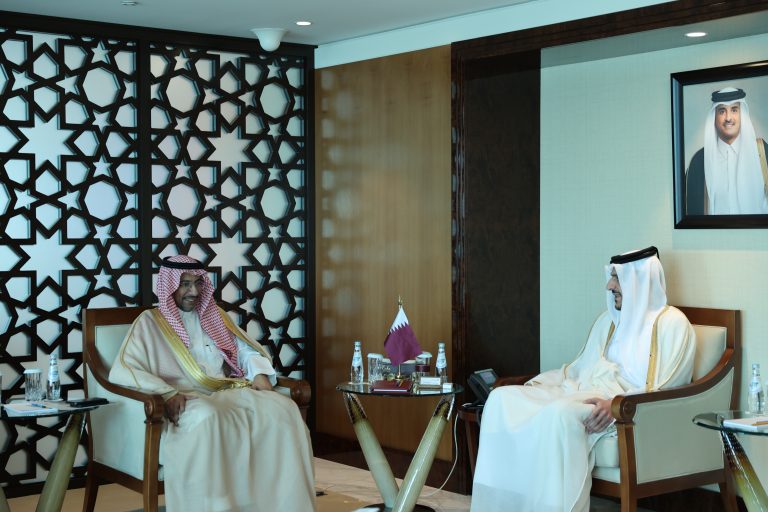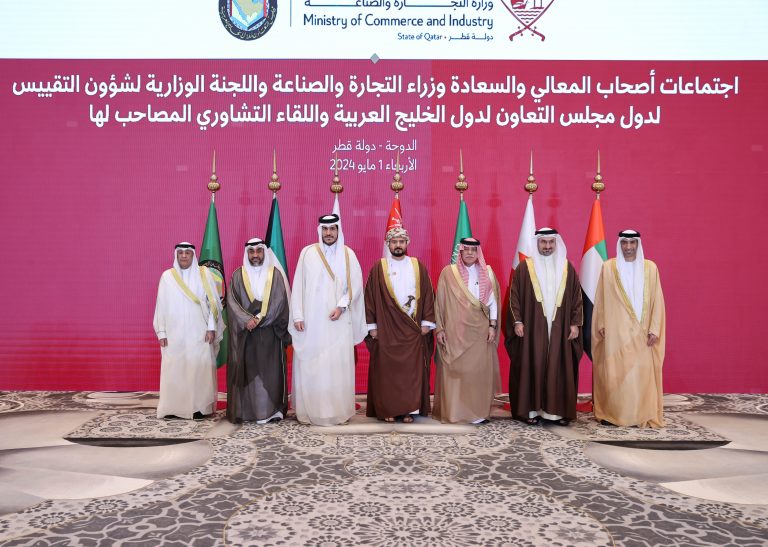On the sidelines of his participation in the reception organized by the U.S Chamber of Commerce in cooperation with the Qatar-U.S Business Council and the Embassy of Qatar in WashingtonH.E Minister of Economy and Commerce: “Qatar’s Economic Roadshow reflect Qatar’s keenness to bolster cooperation prospects with the U.S”· Washington is the second stop of Qatar’s Economic Roadshow in the US.· An exhibition was inaugurated to highlight Qatar’s cultural heritage and to showcase joint achievements and achievements.· More than 200 businessmen and executives from major Qatari companies participated in the Economic Roadshow to enhance investment partnership with their U.S counterparts· Qatar sought to take advantage of its advanced infrastructure and logistics services to mobilize its regional agreements with Kuwait, Iraq, Oman, Turkey, Pakistan, India, Azerbaijan and central Asia.· The development of a sea fleet that connects Qatar with its major trading partners in the world, targeting a market of 400 million population· Qatar’s foreign trade volume increased by 16% in 2017 reaching 103 billion dollars compared with 89 billion in 2016· Globally, Qatar ranks first in terms of providing a safe business environment according to a report published by the World Economic Forum· Qatari-U.S bilateral relations are all about helping people of both nations overcome challenges and capitalize on opportunities· According to the latest report released by the World Bank, Qatar’s real GDP growth is expected to increase to 2.8% in 2018, the highest among the GCC countries.· All economic indicators demonstrate that Qatar overcame the blockade, enhancing the country’s economic competitiveness
H.E Sheikh Ahmed bin Jassem bin Mohammed Al-Thani , Minister of Economy and Commerce, has participated in the reception organized by the U.S Chamber of Commerce in cooperation with the Qatar-U.S Business Council and the Embassy of Qatar in Washington.
In his opening speech, H.E. the Minister of Economy and Commerce thanked His Highness Sheikh Tamim Bin Hamad Al-Thani and praised the U.S Chamber of Commerce, Qatar- U.S Business Council and the Embassy of Qatar in Washington for organizing this event, which brought senior officials, Qatari and U.S businessmen and representatives of civil society in the U.S.
Sheikh Ahmed stressed that Washington is the second stop of Qatar’s Economic Roadshow in the U.S, adding that this initiative aims at highlighting the close economic partnership between both countries.
On a related note, H.E. stressed that international trade and investment form a key part of Qatar’s future growth and diversification, adding that the US is one of Qatar’s most valued and largest global partners.
Sheikh Ahmed said US$24 billion worth of goods were traded in the last five years, noting that 84% of the trade balance is in favor of the U.S, the equivalent of 20 Billion U.S dollars while 16% of Qatar’s imports came from US in 2017.
Meanwhile, more than 650 American companies are established in Qatar, including 117 companies 100% owned by U.S citizens, H.E. said, adding that another 55 U.S companies operate under the Qatar Financial Centre.
According to the minister, Qatar has been increasing its investments in the U.S for many years, creating thousands of jobs across America. These include partnerships with numerous American companies, such as Boeing, ExxonMobil, ConocoPhillips and Raytheon, Sheikh Ahmed noted.
In addition, 15,000 American citizens live in Qatar, where 5,000 highly skilled individuals are currently working in the private sector, H.E. said.
Touching on Qatari investments in the US, H.E. said Qatar Airways alone provided a US$92 billion boost to the U.S. economy through the purchase of 332 American aircrafts, a deal that supports more than 527,000 jobs.
H.E added that US$146 billion worth of exports and orders to Qatar have generated one million American jobs that depend on doing business with Qatar.
Qatar Investment Authority has also pledged to invest US$45 billion for the period from 2015 to 2020. Of that, US$10 billion will be channeled into the infrastructure sector, H.E. said, noting that these investments represent 23% of Qatar’s GDP.
In the oil and gas sector, Qatar Petroleum has also invested $10 billion in an LNG plant in Texas, which H.E said, will contribute to generating 45,000 jobs.
Highlighting investments by the private sector, Sheikh Ahmed said private companies have heavily invested in the U.S economy, with more than US$5 billion in the fields of technology, hospitality, real estate and household retail.
The minister also pointed out that Qatar spent US$200 million on medical and healthcare for its citizens in 2017, while more 1,200 Qatari students are studying at universities in the U.S.
Touching on the illegal blockade imposed on Qatar since June 5 of last year with the aim of undermining Qatar’s position as an economically independent and sovereign state, H.E said Qatar has emerged stronger and more independent than ever before.
H.E also noted that the illegal blockade has presented an opportunity for Qatar to make its economy more accessible to the world and bolster its trade relations particularly with the U.S.
H.E. added that Qatar has successfully established direct commercial routes with a number of strategic hubs around the world, diverting trade to its major trading partners.
Along similar lines, Qatar is utilizing its available world-class facilities and hi-tech logistics to mobilize its regional agreements with Kuwait, Iraq, Oman, Turkey, Pakistan, India, Azerbaijan and Central Asia, H.E. said. Through these agreements, Qatar aims to expand its trade activities by establishing a sea fleet that connects Qatar with its major trading partners in the world, targeting a market of 400 million population in its first stage, he added.
Sheikh Ahmed explained that the wise policies adopted by the State of Qatar, which stimulated all sectors of the economy to achieve increased productivity, have reflected positively on the national economy. Qatar’s economy continued its positive performance during the past year, confirming that the country was unaffected by the blockade, H.E. said.
In 2017, Qatar’s total GDP Increased to US$220 billion, compared with US$ 218 billion in 2016, H.E. said, noting that the annual real growth rate at constant price reached around 2% in 2017, which was better than expected.
Quoting the latest report released by the World Bank, H.E. added that Qatar’s real GDP growth is expected to increase to 2.8% in 2018, the highest among GCC countries.
Qatar’s foreign trade has also shown remarkable growth, increasing by 16% to reach US$103 billion in 2017, compared with US$89 billion in 2016, H.E. said.
Qatar’s total exports also increased by 19% to reach US$68 billion in 2017, up from US$57 billion in 2016, contributing to a total trade surplus that increased by 40% from US$25 billion in 2016 to US$35 billion in 2017, H.E. added.
Globally, Qatar ranks first in terms of providing a safe business environment, HE said quoting a report published by the World Economic Forum.
All these positive indicators, according to Sheikh Ahmed, show that Qatar has overcome the blockade by enhancing its economic competitiveness.
H.E added that Qatari-U.S relations extend beyond trade and investment, noting that Qatari-US cooperation is aimed at helping people of both nations overcome challenges and capitalize on opportunities. H.E said Qatar has donated US$100 million to help victims of Hurricane Katrina, which contributed in community development, building houses and hospitals. Qatar also provided US$30 million dollars in aid after Hurricane Harvey.
Sheikh Ahmed added that the Qatari private sector is also playing a major role in US corporate social responsibility, citing the privately funded “Al Faisal Without Borders Foundation,” which has launched projects to help rehabilitate American ex-convicts.
Building on all these facts, H.E said the first stage of the economic roadshow, which targets 10 states in total, kicked off in Miami, Florida, and includes Washington DC, North Carolina and South Carolina while the second stage across other states will follow later. H.E added that the roadshow reflects Qatar’s keenness on taking bilateral economic relations to new level and increasing cooperation between the private sectors in both countries.
More than 200 businessmen and Qatari officials participating in the Economic Roadshow are looking to bolster investment partnerships with their U.S counterparts through economic forums and bilateral meetings, H.E said.
Qatar has also launched an exhibition that highlights Qatar’s heritage and culture as well as its major achievements and investments in the United States, the minister said.
Sheikh Ahmed concluded by reiterating Qatar’s commitment to its vital strategic economic partnership with the US to the benefit of a prosperous Qatar and U.S.
The ministry organized on the sidelines of Qatar’s Economic Roadshow in Miami and Washington a number of workshops and sessions between the Qatari and U.S private sectors as well as roundtable sectorial discussions and an exhibition on the sidelines of the Roadshow in Miami. The exhibition brought together representatives from state institutions including the Ministry of Economy and Commerce, the Supreme Committee for Delivery & Legacy, Qatar Airways, Doha Film Institute and Qatar Foundation along with a number of U.S companies that have partnered in investment projects with Qatar such as Occidental Petroleum, Boeing, ExxonMobil and ConocoPhillips.
Qatar’s Economic Roadshow in the U.S brings Qatari officials to a number of US cities and features economic forums, bilateral discussions, meetings between Qatari businessmen and their American counterparts, exhibitions and roundtable sectorial discussions in the fields of real estate, investment, hospitality, tourism, hotel, technology, health, medicine, banking, law, public-private partnerships and infrastructure projects.
H.E Minister of Economy and Commerce: “Qatar’s Economic Roadshow reflect Qatar’s keenness to bolster cooperation prospects with the U.S”
April 12, 2018







